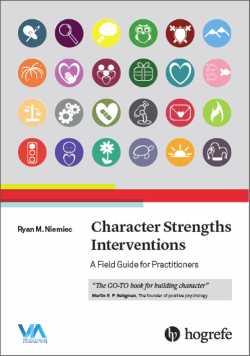The Pursuit of Meaning
The pursuit of happiness is not unique to humans, this is characteristic of all animals; it’s the pursuit of meaning that sets human beings apart. This is your ability to engage in an activity that connects you with something greater than yourself.
What gives you a sense of meaning or purpose in life?
Maybe it's one-on-one time with people you love such as your kids, partner, parents, siblings, work colleagues, and friends. Do you find meaning when you are trying to accomplish something, such as writing, working on a project, gardening, or preparing a meal? It might not even be the final product that fills you with meaning, as it is more the journey or the experience while you are working on it. You may also feel a sense of purpose when you are connecting with something sacred/spiritual, working on self-development, or witnessing something beautiful in nature.
It feels personally fulfilling to engage in an activity that brings you a sense of meaning, so finding more ways to engage in these activities can be a great way to boost well-being. Science reveals you have a wellspring of opportunity to build meaning in your life, virtually everywhere you turn. After examining 79 studies on the meaningful life, Joel Vos, a researcher studying the science of meaning, uncovered 5 main areas. As you read each area, take notice of which rings strongest for you.
5 Areas of Meaning:
1) Materialism: finding meaning through your animals, possessions, professional successes, finances, nature, leisure activities, sexual experiences, health, and/or sports.
2) Self-growth: finding meaning through resilience/coping, self-insight, self-acceptance, creative self expression, self-reliance, reaching daily goals, and/or self-care.
3) Social: finding meaning through feeling connected with family and friends, belonging in a specific community, contributing to society, and/or taking care of children.
4) Transcendent: finding meaning through purpose in life, personal growth, self-development, the temporality of life, justice and ethics, religion, and/or spirituality.
5) Being here: finding meaning through your own uniqueness, for simply being alive, connecting with others and the world, and/or freedom.
Building Your Meaning
Researchers have not yet found an upper limit where you can have too much meaning (which is the case for character strengths – where you can have too much or too little), so you can feel comfortable expanding upon your already-meaningful life. Or, if you feel you’re lacking in meaning, you have a plethora of choices. Here are some specific steps to take action:
1) Your meaning source: Start by choosing one of the 5 areas that you’d like to tap into or expand upon. Which of the 5 is most intriguing to you? Which of the 5 do you feel motivation to pursue right now – today?
2) Your next step: Consider one way you can take action with that area. What will you experiment with today? For example, if you choose health under materialism, you might start walking in nature. If you choose “finding your uniqueness” under “being here,” you can take the VIA Survey to uncover your top 5 signature strengths – that which are most uniquely you. If you choose belonging, you could look into a new community group in your area to try out.
3) Your character strengths: Hold your highest character strengths close to you as you take action. How might they help you take action? We know from the work of several researchers that character strengths provide a pathway toward a meaningful life. For any of the sources above that you wish to grow, you can tap into your character strengths. Your strength of curiosity can help you ask questions as you connect with a new friend and your strength of creativity can help you pursue new ways to express yourself.
A helpful idea here is to look at your #1 character strengths and ask yourself: How might this strength help me take action toward greater meaning? Then, look to your #2 strength and ask the same question. Do this for your top 5 strengths. If you keep an open mind, you’ll be surprised at the ideas that emerge.
More Ways to Explore Meaning
Research shows that people with a sense of meaning are healthier, happier, live longer, and are more likely to achieve their goals. Good news - it's not hard to build more meaning in your life and you can start now. In our Start with Strengths course you'll explore how your daily tasks align with your character strengths and how using your strengths more can help you find more life purpose and fulfillment. Learn more and get started today.
References
Vos, J. (2016). Working with meaning in life in mental health care: A systematic literature review of the practices and effectiveness of meaning-centred therapies. In P. Russo-Netzer, S. E. Schulenberg, & A. Batthyany (Eds.), Clinical perspectives on meaning: Positive and existential psychotherapy (pp. 59-87). Cham, Switzerland: Springer.
Niemiec, R. M. (2018). Character strengths interventions: A field-guide for practitioners. Boston: Hogrefe.


